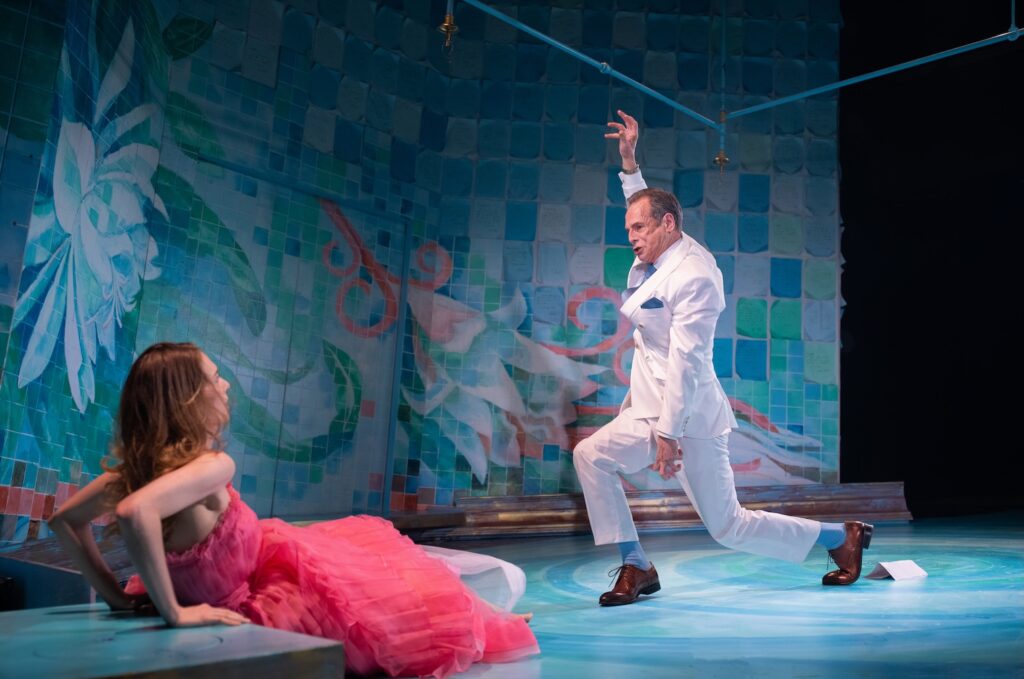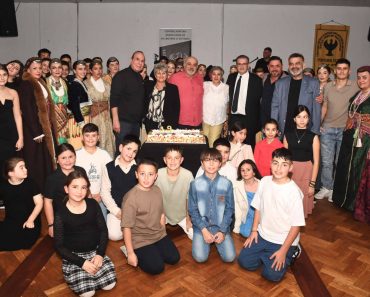No contemporary playwright has combined depth and whimsy more beguilingly than Sarah Ruhl. Drawing inspiration from sources as diverse as the Salem witch trials, Virginia Woolf, and Peter Pan, the two-time Pulitzer Prize finalist has crafted playful, poignant works that find wonder in quotidian matters and, conversely, make the fantastical seem natural.
For “Eurydice,” originally staged off-Broadway in 2007, four years after its world premiere, Ms. Ruhl cast a fresh eye on the Greek myth of the musician Orpheus and his doomed bride, Eurydice. Most modern adaptations have basically stuck to the script laid out by ancient writers, in which Eurydice is killed shortly after their marriage and descends to the underworld, where Orpheus follows her, using his exquisite music to gain entry.
Hades, moved, agrees to allow Orpheus to bring Eurydice back to the world of the living, but only if she walks behind her husband and he refrains from looking back at her. As anyone acquainted with the popular story knows, it doesn’t turn out well for the couple.
In Ms. Ruhl’s version, there’s a twist. Eurydice arrives in the underworld to discover another man who loves her just as intensely as Orpheus does, and has for even longer: her father. In a charming and haunting new production helmed by Les Waters, the play’s original director, he’s played by Brian d’Arcy James, a beloved Broadway veteran who’s joined here by Maya Hawke, the daughter of Ethan Hawke and Uma Thurman, in the title role.

Caleb Eberhardt plays Ms. Ruhl’s Orpheus, a dreamy young man who prefers music to words — her Eurydice is chattier, and an avid reader — with an easy, fetching earnestness. Maria Elena Ramirez, John Norman Schneider, and David Ryan Smith provide comic relief as, respectively, Loud Stone, Little Stone, and Big Stone, who serve as both a Greek chorus and enforcers for the “Lord of the Underworld,” as Hades’s representative is called here.
That Lord is an even more engagingly ludicrous figure, a child who pedals around his empire on a tricycle, wearing a red dunce cap — the droll costumes and lovely, fanciful set design are provided by Oana Botez and Scott Bradley, respectively — and bellowing orders in a petulant tone. He’s played, hilariously, by the 60-something T. Ryder Smith, who doubles as “A Nasty Interesting Man” who preys on Eurydice on the day of her wedding — a character clearly based on Aristaeus, whose pursuit of the young woman precipitated her death, according to the legend.
But this production belongs to Mr. James and Ms. Hawke, who chart Eurydice’s reunion with her dad and the difficult lessons and choices that follow to enchanting and ultimately heartbreaking effect. Mr. James, best known for his robust performances in musical theater, in roles ranging from the cartoon ogre Shrek to an alcoholic veteran in “Days of Wine and Roses,” first appears as the father is composing a letter to Eurydice on the occasion of her marriage.
Reciting words chosen with great care, even though he doubts his message will reach Eurydice, the father first offers practical and witty advice — “Keep quiet about politics, but, dear God, vote for the right person” — and then ends with these pearls of compassionate wisdom: “Continue to give yourself to others because that’s the ultimate satisfaction in life — to love, accept, honor and help others.”
Ms. Ruhl’s portrait of this man in conjunction with her pining Orpheus, both so adored by Eurydice, pose a stark contrast to caricatures of toxic masculinity that have littered New York stages in recent seasons. And Mr. James does full justice to the playwright’s vision, imbuing the role with both strength and tenderness. When his ghostly patriarch imagines walking Eurydice down the aisle, or later when he builds her spirit a room out of string, you may well feel a lump in your throat.
Ms. Hawke proves just as supple. The young actress has inherited the Amazonian beauty and piquant wit that made her mother such a distinctive and engaging film presence, and she applies these qualities to a heroine who, however devoted to her dad and to Orpheus, needn’t rely on either of them to take care of herself.
It’s this characterization that makes “Eurydice” most refreshing and perhaps even radical compared to so many others in modern theater and other media, in which men are mocked or vilified in the pursuit of an empowering message. Ms. Ruhl’s perspective, both feminist and deeply humanist, will validate any woman who has been lucky enough to know the love and respect of a good father and husband — and there are more of us than you might think.







